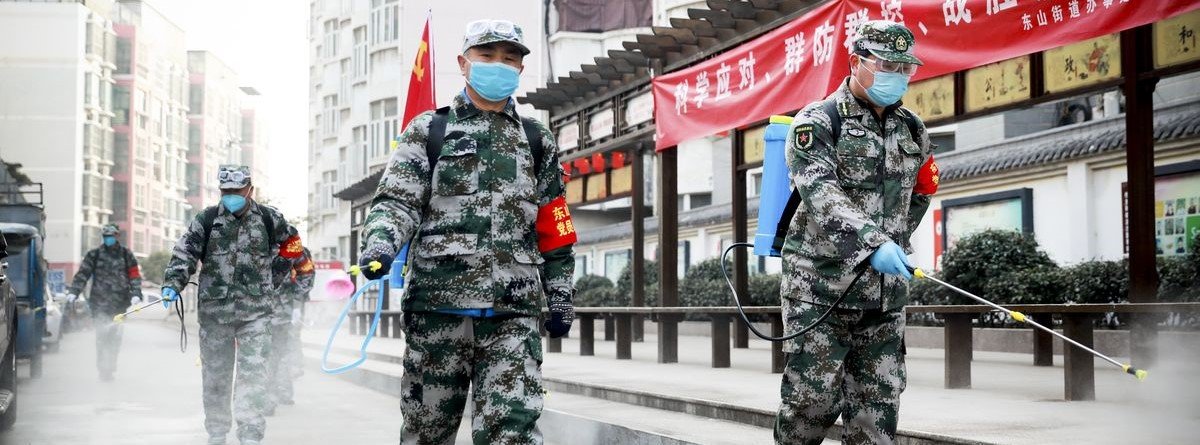This much needs to be understood right off the bat: for our current (worldwide) economic system to survive, debt-fueled consumption is essential. To put it differently, what we are dealing with on a global scale is a “paradox of thrift” situation, where the global financial system and subsequently global economy would risk grinding to a
Current Affairs
Jun
- No Comments
Just How Serious Would a Recession Scenario Be for China… and Everyone Else?
The economic landscape is pretty much always dominated by a wide range of controversial topics and among them, a popular one tends to be that of recessions, with two broad sides being relatively easily identifiable. On the one hand, there are those who consider recessions bitter but necessary medicine (Austrian Economists, for example) and believe
Jun
- No Comments
Hard and Soft Landing Scenarios for China in the Context of Unprecedented Economic Interconnectedness
If we eliminate the time dimension from the equation, it isn’t the least bit difficult to state (in a quasi-axiomatic manner), that whenever there are imbalances when it comes to a certain nation, the market will ultimately figure out a way to re-establish balance. For example, if a country is overly indebted, the market will
May
- No Comments
Antitrust in China: The Anti-Monopoly Law (AML) and Its Enforcement
From tacking monopolies to discouraging the formation of cartels (a type of oligopoly) and acting as a collusion deterrent, the antitrust dimension of a legislative system has received quite a bit of attention in Western jurisdictions such as the United States, European Union and so on. Why? Simply because the three phenomenon types mentioned previously
Apr
- No Comments
(Coronavirus) Pandemics in China… and Elsewhere
In light of how much exposure the topic has received and in light of the fact that the effects of a pandemic (from the far more systemically serious coronavirus/covid-19 to the less problematic bird flu or anything else) most definitely go well beyond the medical dimension (with the economic one also being in the spotlight),
Apr
- No Comments
China’s Relationship with the United Kingdom from a Potential Post-Brexit Bilateral Trade Deal Perspective
Formally speaking, the Brexit has indeed taken place, a Brexit debacle that generated immense market-wide frustration in light of the (many!) failed negotiation attempts and quasi-ubiquitous lack of clarity when it comes to pretty much any imaginable topic. From reaching pragmatic agreements with the European Union to perhaps another Brexit vote, scenarios abounded to such
Mar
- No Comments
The Flight from (Over-)Regulation to and From China?
Time and time again, public discourse ends up being dominated by headlines revolving around government intervention, more specifically what is expected by the government when it comes to a wide range of public interest topics. For example: What should governments do to tackle global warming? What should governments do to tackle inequality? What should governments
Mar
- No Comments
A Chinese Perspective on Peer-to-Peer (P2P) Technology
We have written our fair share of articles that pertain to blockchain technology or individual sectors of the blockchain world here on ChinaFund.com: An article on China’s love/hate relationship with individual cryptocurrencies (bitcoin and the thousands of altcoins that exist), which can be accessed by clicking HERE An article on China’s far better relationship with
Mar
- No Comments
Personal Freedoms in China: Westernization/Legalization vs. Traditionalism
The economic interconnectedness we keep referring to here at ChinaFund.com is more than just a buzz word, because its ramifications move well beyond the realm of economics. To (over)simplify, economic interconnectedness leads to continuous transfers, not just transfers that are economic in nature (transfers of wealth, technology and so on) but also anything from political
Mar
- No Comments
Monopolies and Oligopolies in China: Entrepreneurship Deterrent?
Few things are more conducive to entrepreneurship-driven economic growth than a level playing field, than an economic reality which enables anyone with a dream to go for it. Think of it as the difference between achieving centralized economic growth that is “orchestrated” by the state and achieving “organic” growth in a free market framework by











